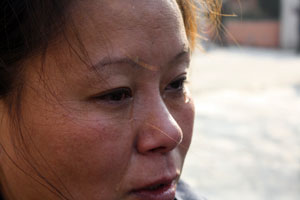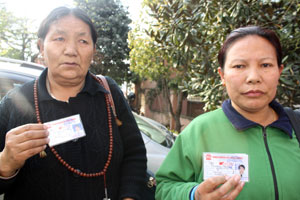 ANURAG ACHARYA |
Two girls and eleven boys were arrested by the Lalitpur sub-metropolitan police on 24 February at 2:30 PM from outside the UN building in Pulchok where they had gathered to submit a memorandum on the human rights situation in Tibet. Ten prominent lawyers argued their case, stating that in the absence of a complaint from the UN body or any individual, and with no credible evidence of violence or obstruction to public life, there was no legal basis for their detention.
"The detention violates individual's freedom and right to peaceful gathering since the area was neither a restricted zone nor under any emergency law, the state cannot use a vague term of 'public offense' to make a case of detention," said defence lawyer, Pawan Jaiswal.
There is sufficient ground to question the intention of Lalitpur administration which twisted the details of the case and made a unilateral decision without providing legal defence to the accused. The students were later released after parents submitted the bail amount.
 |
Nini Gurung of UNHCR told Nepali Times that in principle, Tibetans who arrived in Nepal prior to 1990 and their descendants are entitled to refugee cards attesting to their right to reside in the country. However, the issuance and renewal of such documents have been inconsistent and UNHCR has asked that every bonafide refugee should get an identity document.
International rights groups have repeatedly appealed to the Nepal government to uphold international human rights conventions of which it is a signatory, but to no avail. Most mistreatment of refugees go unreported, and Nepal's mainstream press was conspicuous by its absence at the Supreme Court last week.
The real puzzle, however, is how a police force which has failed spectacularly over the years to foil terror attacks and assure public security, has all the time in the world to chase, harass and deport Tibetan refugees?



